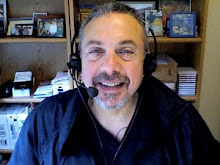A business friend called last week to share an interview horror story. He has managed a $50 million business unit for a major brand and is very highly regarded.
His story was funny and sad at the same time. He was absolutely turned off by the interviewer, the president of the company; was extremely glad not to get the job or even get invited back for a second meeting; and he will probably never buy that company's products because of the downright discourtesy and rudeness of the president.
NOTE: Identities and product categories have been obfuscated to avoid harmful blowback. Don't want my friend to get hurt. Just hope other interviewers learn the obvious lesson: Interviewing is an exchange of information and a chance to build good will. Use the interview wisely and well.
Company X is a popular nameplate of consumer goods looking to expand their brand equity into another item. My friend was very well (perhaps over -) qualified for a category manager position. The president and owner of Company X flew the candidate into his city at his expense.
My friend's $50 million business unit was in the same category at a very large company with a household name. His category at that time was probably as big or bigger than the total size of the company at which he was being interviewed.
My friend met the president at the designated spot in the airport in the president's home city. They exchanged a few social pleasantries.
Almost immediately, as the meeting progressed, the president and owner of Company X proceeded to denigrate and belittle two of my friend's previous companies. Then he went on to dispute several of my friend's statements in a churlish, competitive fashion.
My friend said that he thought to himself, "Why did he bring me into town and ask me these questions if he already knows all the answers?"
Because of the kind of person he is, my friend had done a little research on Company X. He had discovered an issue he wanted to share with the owner in the interests of improving his business. My friend's approach was, "Hey, here's a situation you might want to know about ... because it directly affects market penetration in the category under consideration."
At an appropriate time, my friend said, "I was in [one of the top five US markets] last week. I called your customer service department and asked where in that city I could buy your product at retail.
"The Customer Service Representative said, 'I dunno. Could you call back tomorrow? Or ... why don't you just buy the product online?'"
The president and owner of the company said, "Well, you should have bought the product online." Showing that he wasn't really listening and totally missed the point.
My friend didn't want to buy the product. He wanted to go to a retail venue and see the merchandising. He wanted to understand the product range and line segmentation and to look at competitive products.
Here's the lesson for all interviewers: Represent your company with professionalism. Avoid critical or negative comments about a candidate's previous employers ... or ANYTHING.
Think about it: If a candidate comes into the interview setting and says something cutting about their current company or challenges statements by the interviewer, that would pretty much end the meeting.
Same rules apply to you as apply to them.
And if the candidate makes a gracious suggestion on improving your customer service, make a note and say, "Thank you."
